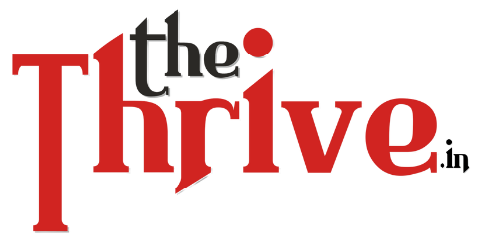You probably already know that having a strong team will greatly influence the success of your startup or business. You also likely know that creating a winning team isn’t always easy. And building an effective role in a team is like preparing a good meal.
When you put together a team of employees, one of the main things you should focus on is having them perform well individually, but also as a cohesive unit. This means that each individual member has to play their part perfectly to ensure that the entire team succeeds.
Teams have different roles within organizations, each contributing toward the overall vision and mission of the organization. The concept of roles is important because they help structure the relationship between individuals and groups, thereby optimizing the performance of teams. When a role is properly defined, individual members can better perform their tasks, leading to higher productivity and improved efficiency.
The importance of teamwork cannot be underestimated in today’s competitive environment. In fact, studies show that effective teams outperform those who aren’t very good at working together. Nowadays companies have to rely heavily on employee performance since they often lack the capital or expertise needed to accomplish certain projects. Therefore, ensuring that every person contributes positively towards the success of a project plays a vital role.
Here are seven roles that members of an effective team play. They might seem obvious, but if you don’t pay attention to these details, you could risk compromising the productivity and efficiency of the entire group. We must first know what is a team, before understanding its role.
In what sense is a team defined?
A team is defined as a group of people who perform interdependent tasks to work toward accomplishing a joint mission, goal or specific objective.
Some teams have a limited life or you can say it's a design to develop a new product, or a continuous process improvement team organised to solve a particular problem in a company For example a department team meets regularly to review goals, activities, and performance.
An organization with many teams requires careful alignment according to skills and the solution you are looking for. As teams link with other teammates, the principles of developing understanding and trust will apply, understanding the many interrelationships that exist between organizational units and processes.
Teams have roles, but what are they?
Team roles have a framework for a team role as “a tendency to behave, contribute, and interrelate with other members in a particular way in an organization. To create the strongest teams with the greatest diversity of personality types. They make up for one another’s strengths and weaknesses to create a balanced team.
When you create team roles according to the team leader It gives employees an awareness of their strengths, which allows them to focus on the tasks most suited to them while reducing confusion among team members.
It also allows managers and leaders to form roles in teams based on project objectives or to solve any problem in the firm. This enhances employee motivation, sometimes their skills and performance while improving the effectiveness of teams.
What is the significance of team roles?
Understanding the role of teams can improve team performance and can solve any problems easily. Members of a team need to have clearly defined roles and responsibilities in order to work together effectively to achieve goals.
When you have well-defined team roles, communication and collaboration among team members flow easily; each team member must understand their role within the team. This allows them to work according to their skills, strengths and weaknesses and improve their direct contributions to the firm.
Remember teams in which members have similar strengths can foster competition and infighting. On the other hand, if most of the team has similar weaknesses, the team as a whole will have that same weakness so you have to choose wisely.
Benefits of teams
It makes it easy the process of problem-solving
An objective analysis of problems or new opportunities
Improved quality and motivates team members to increase their productivity
Greater innovation & ideas
Reduced managing costs
Increased commitment to organisational mission
It creates a flexible environment according to team member's skills
Benefits from teams member as an individual
Enhanced skills and understanding to acknowledge any problem
Broader knowledge of business
Develop skills for future leadership roles
Increased quality of work life and developed productivity.
Feelings of satisfaction and commitment toward the organisation
What is team management?
Team management is a manager or leader who has an organization’s ability to lead a group of people in accomplishing a task or common goal. Effective team management involves supporting, good communicating skills and uplifting team members so they perform to the best of their abilities and continue to grow as professionals and developing organizations.
Some managers or leaders do well with an authoritative approach, while other managers prefer to manage their teams in a more casual and easy way. Understanding your own leadership style and what works best with your team members is an important part of team management.
Why is team management important?
It promotes a merged approach to leadership within a company or team, especially when team building is implemented.
It makes it easier to solve problems by implementing others' thoughts and skills.
It encourages direct communication between leaders or managers and team members and emphasizes good communication skills and active listening in a company.
It ensures managers and team members are working toward a common goal that has been clearly defined for the organization's development.
It helps managers clearly outline the roles and expectations of the company from their employees.
In order for a team to be effective, what are the 7 roles it should adhere to?
1) Clear communication:
A team with open and clear communication allows members to discuss their ideas and feel that their input, thought & opinions help them solve problems and complete tasks in creative ways. Effective communication also involves active listening, where members make a conscious effort to hear their teammates' ideas and reflect before responding to their work as a bonus for the organization. This allows a team to share its knowledge, experiment with new ideas, and creativity and work together to develop effective plans.
2) Make decision making:
Reaching decisions or conclusions helps effectiveness within a team. This allows everyone to be in agreement on important decisions and can improve their level of commitment to their work and creates a good working environment within the firm.
3) Conflict resolution in the firms:
Successful teams usually have effective methods for resolving any conflicts that may arise within the firms. During a disagreement, members may speak to one another calmly, respect each other's ideas and focus on finding a compromise or a solution. This helps them listen to differences in opinion and find good resolutions that satisfy the entire group. Effective teams improve their decision-making and problem-solving strategies.
4) Defined goals:
Before working on tasks, an effective team may first have to identify their goals. The team might work together to identify common aims and objectives that align with a company's goals. Team members may find it easier to commit to a project's goals when they know each other's skills so they can define their goals. You can create plans for how to accomplish these goals, assigning roles and making schedules.
5) Collaboration with teammates:
Effective teams rely on collaboration to complete their tasks and accomplish goals. Collaboration involves seeking help when problems arise and sharing suggestions with other people in the organization.
Team members may collaborate continuously throughout a project to ensure they work on the right tasks and contribute to the planned outcomes. Collaborative work helps encourage innovation, and creativity through the exchange of ideas and the collective expertise of a team.
6) Trust:
Teams that have trust between members can accomplish their goals easily because they believe in the work process of a project and in developing an organization. Trust contributes to open communication, problem solving and collaboration. A successful team might rely on team-building exercises to increase trust between organisations.
7) Effective leadership:
Successful teams usually have effective leadership, where one or several members act as team leaders which helps unify the entire team to work toward common goals. Leaders often provide guidance, motivation and focus. They may offer encouragement and solutions when the team members encounter a challenge. Leadership can provide a sense of responsibility and, possibly improve a team's performance.
Summary
A team that celebrates its successes together can inspire motivation in its other members in the firm. Recognizing each member's skills for common goal successes can help keep teams engaged in their tasks and see the direct results of their work. When each team member has an assigned role, they can make effective contributions to the group and help ensure completion of the goal.
A team might ensure that it focuses feedback on addressing problems, providing methods to improve workflow and accomplishing a project's overall goals.
Effective teams often reevaluate roles once a leader assembles the group to ensure each member can fulfill the expectations of their roles in that project.





